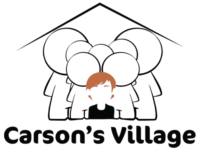Grief can be overwhelming—emotionally, physically, and mentally. After making arrangements for a loved one, many find themselves carrying the emotional weight of loss, which can take many forms. There’s no one-size-fits-all experience of grief. People may encounter (to name a few):
- Anticipatory Grief – experienced before an impending loss
- Complicated Grief – when grief feels prolonged or unusually intense
- Cumulative Grief – grief from multiple losses over time
- Delayed Grief – when grief surfaces long after the loss occurred
To better understand when and how to seek support, we’re joined by Poonam A.V. Dubal, Ph.D., LP, LSSP, Director of the SMU Psychology Clinic, who will share insights on accessing professional help and what to expect from the counseling process.
 When should someone consider seeking professional support for their grief?
When should someone consider seeking professional support for their grief?
Grief is such a normal part of life, but there aren’t a lot of communal or societal supports for helping people cope. Also, many people feel shame or embarrassment around their emotions, and they may feel like they should grieve in private. Grief is hard to get through alone, though, and it can be very powerful to engage in professional support around your grief. You may find comfort in a local grief support or processing group (searching on Psychology Today is a great place to start). You may also seek a counselor or therapist for short-term support (I always encourage folks to see if their insurance or workplace covers mental/behavioral health supports to reduce the out-of-pocket cost). You may find it helpful to begin working with someone to establish care, much like a Primary Care Provider. Once you’ve established care with a therapist, you can schedule regular sessions at a frequency that feels right for you. For instance, you might meet monthly or every two weeks with your therapist, but you might increase that frequency if you are coming up on an anniversary or another major stressor that is activating your grief.
What factors should people keep in mind when choosing a counselor or support resource?
What many people don’t realize is that their attitude toward the therapy or counseling process makes the biggest difference. If you’re ready to work through things and you put in the time and effort, healing becomes more available. Your therapist is not going to be able to do your healing for you or suddenly “fix” you; however, they can help you discover the right tools to help yourself and facilitate the healthy processing of difficult emotions.
What types of therapy are commonly used for grief, and what are the differences between provider types (e.g., counselors, therapists, psychologists)?
It’s important to know that nearly any mental health provider will be able to support your healing process, though they may take different paths. These particular terms are often used interchangeably, though there can be some distinctions. As a general guide:
- A counselor is mental health provider who may provide short-term, focused support and may use more of a problem-solving approach. They might approach a client’s emotional or behavioral challenges, or specific problems (e.g., addiction, grief, abuse) in a structured and practical way.
- A therapist is a mental health provider who may utilize a specific framework of therapy (like CBT combined with talk therapy) to delve deeper into underlying issues. Work with a therapist is typically longer and seeks to get to the root issues that are causing distress or a loss of functioning.
- A psychologist is a mental health provider who, similar to a therapist, uses frameworks of psychotherapy (cognitive, behavioral, psychodynamic, etc.) to help the client find healing. Psychologists are also a great support if there is more to work through (e.g., trauma, complex grief or extended grief, comorbid depression or anxiety), as they are trained extensively in mental health disorders. Psychologists typically have a higher level of education, more supervised experience, and they can also conduct evaluations, if needed.
Once someone selects a provider, what does the process typically look like? What should they expect during their first session?
Your therapist should conduct an intake (the first session, typically, though sometimes it extends further), where they will gather information about you and your history. Being as open and up front as possible about your history helps your clinician to get an accurate view of how best to support you. After that, they will create a treatment plan with you, based on your goals for therapy.

How long does grief counseling usually last, and how can someone tell if it’s helping?
There is no time limit on grief. You might expect initial grief to be most intense, though it can often be delayed due to age, development, or situational factors. Beyond that, grief can still come in waves. Grief counseling is meant to help you work through the stages of grief (Kubler Ross, 1969), which are not linear. Some people may heal from grief after a few months, while others could take a year or more. The best measure is how well you’re able to return to functioning in your typical tasks, activities, and relationships. You may still have sadness or anger at times, but you are integrating the grief into your worldview and reaching a state of acceptance.
What alternatives exist if traditional therapy doesn’t seem like a good fit?
Support Groups, as mentioned before, are a great resource. Many people find a good deal of comfort through spiritual or religious practices, as well as spiritual or religious communities. If connection through these means helps, they should absolutely be utilized. Many even find great help through a combination of talk therapy with their own spiritual/religious practices. Pastoral counseling may be a good fit if you’re not affiliated with a particular group but are still looking to incorporate religious or spiritual perspectives in your therapy process.
There are a lot of supportive, healing practices out there, including the use of meditation/mindfulness practices (which are often incorporated into therapy), body work (e.g., massage, acupuncture, reiki), and a growing body of evidence for psychedelic-assisted therapy. While certain treatments (e.g., psychedelics) should be used with caution and consultation with a trained professional, others are more broadly available. Listen to how others cope with their grief and see what you’re drawn toward. Grief often serves as a clarion call to dig deep into your healing; and there’s no right or wrong way to heal.
You can view the SMU Psychology Clinic’s low-cost therapy options here or on their website SMU Psychology Clinic.
For more resources on Grief and Grieving- see Resource Library | Carsons Village
